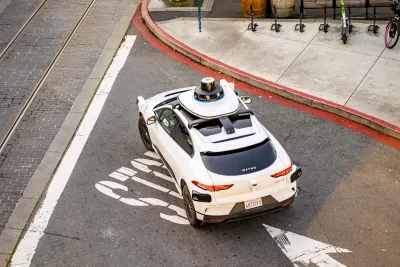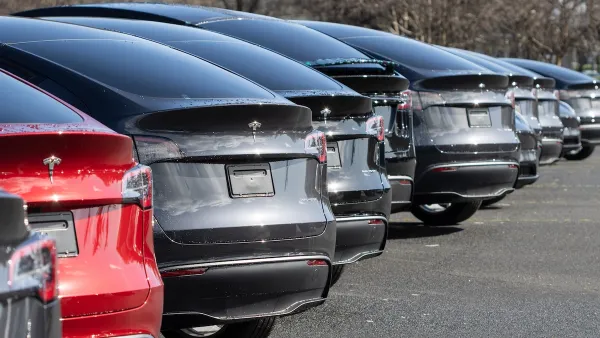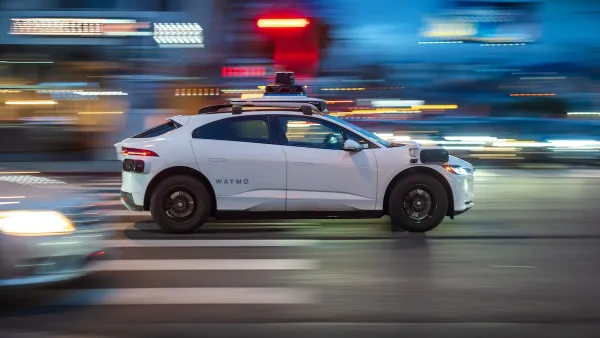As ‘robotaxis’ and other autonomous vehicles make their way onto American streets, cities can take proactive steps to mitigate risks and balance the benefits and challenges of new technology.

In an opinion piece in Governing, Hye Min Park and Fabian E. Villalobos describe a decision-making process utilized in industries such as water and energy that could simplify the complex process of regulating autonomous vehicles. “How can the sometimes-conflicting interests of all stakeholders be considered and balanced?”
The process, known as “decision-making under deep uncertainty” or DMDU, “focuses on actions that can be agreed upon, even if multiple stakeholders agree on little else. For instance, instead of speculating about what does or doesn’t make robotaxis unsafe, DMDU could help regulators and AV companies figure out which warning signs to monitor.” Other methods include measuring proxies for risk when better data is not available, such as “how rapidly the technology is adopted, whether an agency has the ability to manage the risk, or the size of the potentially affected population.”
According to the authors, “Cities and regulatory agencies can often feel that they’re left as bystanders when new technology is rolled out, yet they are responsible for the safety of whatever private entities develop and deploy.” This approach can help them proactively assess and mitigate risks as new technologies are introduced.
FULL STORY: Reining in the Risks of Robotaxis

Planetizen Federal Action Tracker
A weekly monitor of how Trump’s orders and actions are impacting planners and planning in America.

Maui's Vacation Rental Debate Turns Ugly
Verbal attacks, misinformation campaigns and fistfights plague a high-stakes debate to convert thousands of vacation rentals into long-term housing.

Restaurant Patios Were a Pandemic Win — Why Were They so Hard to Keep?
Social distancing requirements and changes in travel patterns prompted cities to pilot new uses for street and sidewalk space. Then it got complicated.

In California Battle of Housing vs. Environment, Housing Just Won
A new state law significantly limits the power of CEQA, an environmental review law that served as a powerful tool for blocking new development.

Boulder Eliminates Parking Minimums Citywide
Officials estimate the cost of building a single underground parking space at up to $100,000.

Orange County, Florida Adopts Largest US “Sprawl Repair” Code
The ‘Orange Code’ seeks to rectify decades of sprawl-inducing, car-oriented development.
Urban Design for Planners 1: Software Tools
This six-course series explores essential urban design concepts using open source software and equips planners with the tools they need to participate fully in the urban design process.
Planning for Universal Design
Learn the tools for implementing Universal Design in planning regulations.
Heyer Gruel & Associates PA
JM Goldson LLC
Custer County Colorado
City of Camden Redevelopment Agency
City of Astoria
Transportation Research & Education Center (TREC) at Portland State University
Jefferson Parish Government
Camden Redevelopment Agency
City of Claremont





























